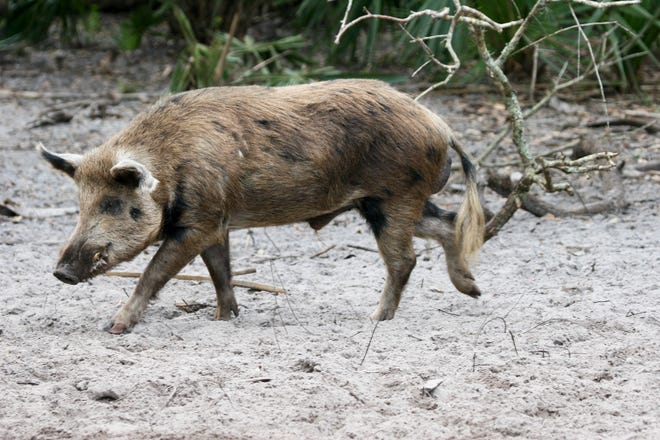Wild hogs have become a big problem in Mississippi and according to the Mississippi Department of Agriculture and Commerce, cause $60 million in damage in the state annually.
In an effort to combat the swine situation, MDAC is once again offering free use of high-tech ‘smart’ traps to landowners and managers in Mississippi through its Wild Hog Control Program.
The department will provide traps for the control of wild hogs on private agricultural and forestry lands in Mississippi. Traps will be deployed in concentrated focal areas across the state, which will be determined by MDAC through the application process.

The traps feature cameras that monitor activity in the trap and transmit video to the users’ cell phones. The department will provide training.
“The next trapping period will occur during the early months of summer which is normally a very successful time for trapping wild hogs,” said Andy Gipson, MDAC commissioner. “I urge farmers and landowners that are impacted by these nuisance animals to submit an application. Use of the traps are free of charge; however, users must supply bait and labor to use the traps.”
In addition to the damage they cause, wild hogs are reservoirs for disease. According to the Mississippi Department of Wildlife, Fisheries and Parks, wild hogs can carry in excess of 65 diseases and parasites.
Wild hogs:Reservoirs of disease
Subscriber exclusive:Disease and destruction: Can Mississippi win the war on wild hogs?
How to apply for a hog trap
Applications must be completed and submitted online at www.mdac.ms.gov/whcp. Submitted applications will be evaluated based on the number of acres available for trapping, historical agricultural losses caused by wild hogs on the property and current trapping on the property. The application period is open now and closes May 16.
For those with small acreage, a cooperative effort is encouraged where multiple adjoining landowners join together and submit a single application. Traps will be available for one-month intervals, dependent upon use and success. One trap per 500-1,000 acres is recommended, depending on landscape and land use.
Visit www.mdac.ms.gov/whcp for program guidelines, applications and additional information. Submit questions regarding the WHCP to Chris McDonald at [email protected].
Contact Brian Broom at 601-961-7225 or [email protected]. Follow Clarion Ledger Outdoors on Facebook and @BrianBroom on Twitter.

